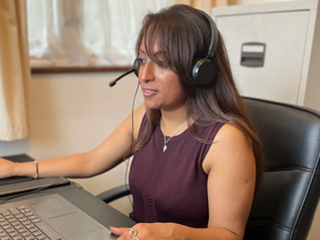Myelodysplastic syndromes (MDS) prognosis
After you’ve been diagnosed with MDS, you may want to know more about your prognosis − what's likely to happen in the future.
Can MDS be cured?
Your hospital team are the best people to ask about your prognosis. They know you and your individual situation, and will be in the best position to answer your questions.
MDS can sometimes be cured with a stem cell transplant. But this treatment is not suitable for everybody as it can have serious side effects. For most people MDS cannot be cured, but it can be controlled and often improved with treatment.
How MDS develops over time
The way MDS develops over time varies a lot from person to person. For some people, MDS develops very slowly and may stay the same for many years. For others, it develops much faster and can make people very ill, as more and more blood cells are affected over time.
Some people with MDS go on to develop another type of blood cancer called acute myeloid leukaemia (AML). This is a type of fast-growing blood cancer that usually needs strong treatment.
The risk of developing AML also varies from person to person. For some people, the risk is very low, while for others the risk is higher. Overall, for every 10 people with MDS, 7 or 8 (70-80%) will never develop AML, and 2 or 3 (20-30%) will.
Your doctor can tell you more about how MDS is likely to develop for you. The main way they do this is by working out your risk group. We explain this below.
MDS risk groups
As well as different types of MDS, people with MDS can be split into different risk groups. Risk groups can give an idea of:
- how quickly or slowly MDS may develop
- the risk of MDS developing into AML.
At the time they diagnose you with MDS, your doctor will work out which risk group you are in. They do this by looking at:
- your blood count results
- the number of immature cells (blasts) in your bone marrow
- the genetic test results from your bone marrow.
There are different systems for working out risk for MDS, but the one doctors often use at the moment is called the revised International Prognostic Scoring System (IPSS-R). This splits MDS into five risk groups:
- very low
- low
- intermediate
- high
- very high.
Some doctors have also started using a newer system called the Molecular International Prognostic Scoring System (IPSS-M). This uses more detailed genetic information to decide on your risk group, and may give a more precise understanding of your prognosis. The risk groups in this system are similar to the ones above, but the ‘intermediate’ group has been replaced by two groups called 'moderate low' and 'moderate high'.
Knowing your risk group can help your doctor plan the best treatment for you. Your healthcare team can explain which risk group you are in, and what this may mean for you.
Higher or lower risk MDS
Your doctor might say you have either “lower risk” or “higher risk” MDS. “Lower risk” includes everyone in the IPSS-R very low and low risk groups. It also includes people in the IPSS-R intermediate risk group with a score of 3.5 or less. “Higher risk” includes people in the intermediate group with a score of more than 3.5, and everyone in the high and very high groups.
This is important, as there are different approaches to treatment for lower and higher risk MDS.
MDS survival times
When they talk to you about your risk group, your doctor might give you information about the average survival time for people in that group. You might also find information about survival times if you search for information about MDS prognosis online.
It’s up to you if you want to know about MDS survival time. If you don’t want to know this, tell your hospital team. They will respect your wishes.
If you do want to know about survival times, it’s helpful to understand what the numbers you may hear or read mean. The survival time for each MDS risk group is usually given as the median survival in years. This means that of the people studied in that risk group, half lived for less time than the median number of years, and half lived for longer.
Some people with MDS live many years longer than the median survival time for their risk group. Everyone is different, and survival statistics can never tell you what will happen to you personally.
Research is happening now to find new and improved treatments for MDS, to bring forward the day when no one dies of MDS.

Worried or have questions about prognosis?
We can talk you through it and support you to have conversations with your doctor.
Understanding your prognosis
If you want to know more about your prognosis, your healthcare team can explain which risk group you are in, and what this may mean for you. Your individual prognosis will be affected by many things, including:
- your age
- your general fitness and health
- the type of MDS you have
- the MDS risk group you are in.
Finding out about your prognosis can be scary, especially if you’ve been told you are in a higher risk group. If you hear or read something about your prognosis that you don’t understand or that worries you, speak to our Support Services Team.
We have more information about understanding prognosis and survival.
“Remember what you read online can’t tell you what will happen to you as an individual. Every person is different, and the statistics you read online do not necessarily apply to you.”
Peter, diagnosed with MDS in 2018.

Questions to ask about prognosis
Talking about prognosis can be difficult, and you might feel anxious about having the conversation with your healthcare team. It can help to think about any questions you have in advance, and take these with you to an appointment.
The questions you have will be individual to you. Here are some suggestions:
- What is my MDS risk group, and what does this mean?
- How likely is it that the MDS can be cured?
- What is the best outcome I can expect?
- I’ve seen some information about survival times for MDS. Can you explain what they mean and how they apply to me?
- I want to plan for an important event in the future (for example a family member’s wedding, a grandchild being born). Do you think I will be able to be there?

Talk to other people affected by blood cancer
Hear from and connect with people who understand.
